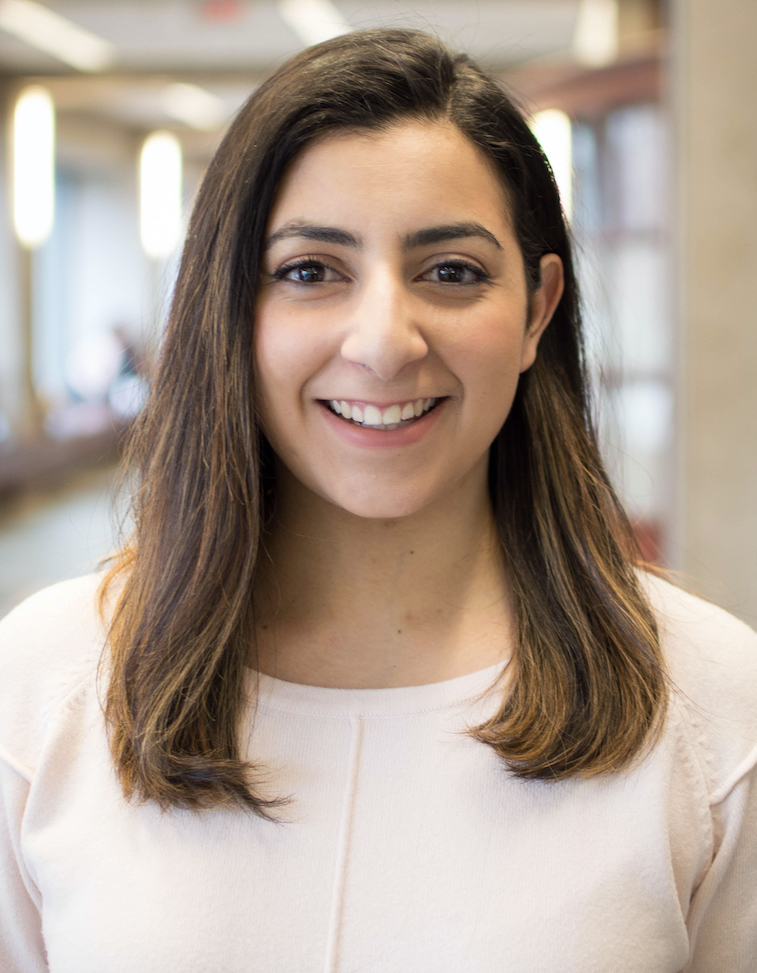Sarah Jabbour selected for CSE HACKS Spirit Award

Sarah Jabbour, a PhD candidate in Computer Science and Engineering, has been selected as the first-ever recipient of the CSE HACKS Spirit Award. The award was established to honor a CSE Graduate Student who embodies the spirit of CSE’s HACKS values of honesty, achievement, cooperation, knowledge, and service.
Michael Wellman, the Richard H. Orenstein Division Chair of Computer Science and Engineering, presented the award to Sarah at the CSE Graduate Student Recognition Reception on April 24. Through this award, the Division acknowledges Sarah’s contributions which have embodied these values, helping CSE to advance its mission to shape the future of computing and benefit the world through excellence in education and research, and to realize its vision to lead in computing, support a welcoming community, and empower every individual to reach their full potential.
“I’m honored to receive the 2023 CSE HACKS Spirit Award,” said Jabbour. “Thank you to the department for the recognition, and thank you to my supportive advisors, lab mates, and CSE peers who embody the HACKS values!”
As a researcher at the intersection of AI and medicine, Sarah has worked to prevent deep computer vision models from learning shortcuts. This benefits society by increasing fairness, since exploiting shortcuts can lead to bias especially when that shortcut is related to a sensitive attribute.
Sarah has published in both clinical and computer science venues. In her work, she has collaborated with CSE faculty, Michigan Medicine clinicians and bioethicists , and Law school faculty. She aims to develop AI technologies inspired by healthcare problems, with the ultimate goal of augmenting clinical care.
Through her work, Sarah has contributed to both the computer science and medical communities. In addition to fundamental advances in artificial intelligence, Sarah has demonstrated how using multimodal data can lead to more accurate diagnoses than relying on imaging or clinical data alone, publishing a first author paper in the Journal of the American Medical Informatics Association on this subject.
Sarah’s research has significant potential for broader impacts since it promises to lead to more robust multimodal models that do not rely on shortcuts which is applicable to a variety of realms.
Sarah also frequently volunteers her time, organizing the AI Lab Symposium poster session in 2021 and an AI Lab tea in 2022. She has participated in graduate student panels for various CSE events and helped review graduate student applications for the AI Lab in 2021.
In terms of outreach, Sarah participated over the past two summers as a teaching volunteer for AI4ALL, an outreach program designed to spark interest and increase persistence in AI-related careers for high school students who have been historically excluded from AI. Sarah has also worked as a mentor for FATE, an after-school program for underserved youth in Detroit.
Sarah is advised by Profs. Jenna Wiens and David Fouhey. In a comment, Wiens said, “Sarah has impressed me with her creativity, her enthusiasm to impact society, and her ability to work and think independently. She has clearly demonstrated her commitment to honesty, achievement, cooperation, knowledge and service. I am excited to watch her continue to grow into a strong researcher in the field of AI and health.”
 MENU
MENU 
